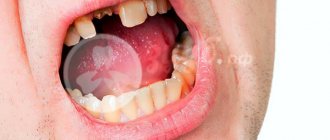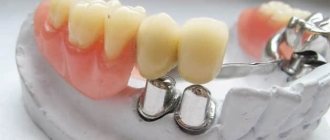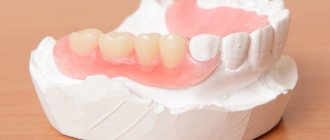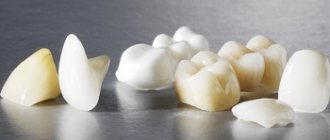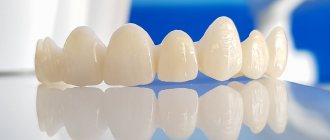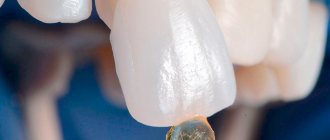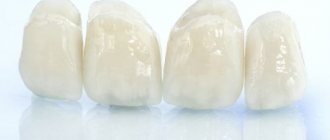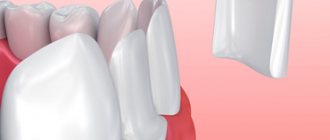In this article you will learn:
- types of dental prosthetics,
- which prosthesis is better for large absence of teeth,
- prices for dental prosthetics – for 2021.
Dental prosthetics is a branch of dentistry that deals with the restoration of damaged or missing teeth, the goal being to restore not only their appearance (their shape and aesthetics), but also their chewing efficiency. Dental prosthetics can be removable or non-removable. Fixed dental prosthetics are most often carried out with artificial crowns or bridges, which are fixed either to abutment teeth ground for crowns, or to dental implants.
Prosthetics in the absence of teeth or in the absence of a large number of them are most often removable. This means you can take your dentures out for cleaning and then put them back in again. However, now there are methods of prosthetics on implants, which, even if there are no teeth on the jaw, will allow you to get a completely permanent bridge prosthesis within 2-3 days after the operation. In this case, we are talking about the basal implantation technique, as well as implantation according to the All-on-4 protocol.
Example of dental prosthetics: before and after photos
Below we will analyze in detail fixed and removable dental prosthetics - types and prices in Moscow for each type of denture. Moreover, if you feel the need to insert teeth, you should always choose a non-removable prosthetic option, if possible, because no matter how good a removable denture is, it can fall off during conversation and when chewing, and the process of chewing food itself will not be very comfortable.
Moreover, in addition to traditional dental implantation, which allows you to obtain a fixed prosthesis even in the absence of teeth, there are also so-called mini-implants that are installed under a removable prosthesis to improve its fixation. Those. the prosthesis will still be removable, but it will be possible to remove it from the jaw only by applying significant force. The cost of dental prosthetics with a removable denture (on 4 mini-implants) is much cheaper than basal implantation or the All-on-4 technique, and will be only about 110,000 rubles.
Types of fixed dental prosthetics –
Fixed prosthetics can be used both to restore the destroyed crown part of a tooth using veneers, inlays or artificial crowns, and to restore missing teeth using bridges or using prosthetics on implants. Fixed prosthetics with veneers and crowns can also be performed for aesthetic reasons, for example, if the patient is dissatisfied with the color or shape of the front teeth.
Below we will look at the prices for dental prosthetics:
- crowns and bridges,
- supported by dental implants,
- veneers,
- removable and conditionally removable dentures.
Stages of treatment
1. Consultation
Examination, questioning, selection of treatment protocol.
2. Diagnostics and preparation
Comprehensive examination (orthopantomogram, CT), testing. Treatment of teeth and gums (if necessary), hygienic cleaning, 3D planning of surgery.
3. Implant installation
Carried out in accordance with the selected protocol. In a two-stage procedure, titanium roots are implanted using a patchwork method; in a one-stage procedure, titanium roots are implanted through a micropuncture of the gum or into the socket of an extracted tooth.
4. Prosthetics
Delayed loading with a prosthesis during classical implantation (a permanent orthopedic system is installed on artificial roots after they have completely engrafted). Immediate loading with a one-stage method (on days 1-3, adaptation crowns or a prosthesis made from the patient’s casts are installed on the abutments. After 10-12 months, re-prosthetics are performed with a permanent structure).
The one-step protocol includes one more stage - surgical removal of the affected tooth or root.
Prosthetics with artificial crowns and bridges –
Many different materials are used to make crowns, differing in strength and aesthetic properties. Therefore, if you decide to insert teeth, the price of crowns made of different materials will differ markedly from each other. Most often, artificial crowns are made from metal ceramics (when the internal metal frame is lined with ceramic mass), or from metal-free ceramics - porcelain, zirconium dioxide, or lithium disilicate.
For fixed dental prosthetics, the prices below will be indicated for 2021 (prices are indicated for clinics in the middle price category).
Cost of dental prosthetics with metal-ceramics –
Can be used for prosthetics of both anterior and chewing teeth. They have an affordable cost and acceptable aesthetics (although it is clear that their aesthetics will be inferior to the aesthetics of crowns made of metal-free ceramics). For the restoration of front teeth, metal-ceramics is not suitable for all patients, and the important point is that in some people the enamel of the front teeth has a high coefficient of transparency, in others it is almost opaque.
A metal-ceramic crown under a layer of ceramic has a metal frame that prevents the passage of light, which means such crowns will be completely opaque. Therefore, if you have high enamel transparency and if you only need to restore single front teeth, this can lead to the fact that the restored tooth will be very different from the neighboring healthy teeth. But when using prosthetics for chewing teeth, the issue of aesthetics is no longer so important.
Metal-ceramic dental prosthetics: before and after photos
In addition, metal ceramics can be very different in quality, and the cost range for 1 crown can be from 5,500 to 16,000 rubles. The difference in price depends not only on the quality of the metal used for the metal frame, but also on the ceramic mass (for example, cheap ceramic mass will definitely mean poor aesthetics, as well as a higher risk of chipping the ceramic). The most important point will be to take into account the crown manufacturing technology.
For example, in addition to traditional metal-ceramics, there is also the so-called metal-ceramics with shoulder mass, which allows you to achieve good aesthetics of the gums around the crown. After all, the main disadvantage of traditional metal-ceramic crowns is not only their complete opacity, but also the fact that they give a pronounced bluish appearance to the gums, which looks very unsightly when smiling. Therefore, if you want to restore your front teeth, it is better to choose metal-ceramics with shoulder mass (more details in the link above).
Dental prosthetics with metal-ceramics: prices
1) The cost of 1 unit of metal ceramics on a cast metal frame made of a traditional cobalt-chromium alloy using inexpensive ceramic mass such as “Duceram” (Germany) will cost about 12,000 rubles. If a higher quality ceramic mass is used on the same frame - this could be “Noritake” (Japan), “Vita” (Germany) or “Ivoclar” (Liechtenstein), then the price will range from 15,000 rubles to 18,000 for 1 crown .
At the same time, if the crown is made with the so-called “shoulder mass”, then add approximately another 5,000 rubles to the prices indicated above.
2) If the metal frame is made not by casting, but by milling on a computer-controlled machine (using CAD\CAM technology), then the cost of 1 crown will be about 20,000 rubles. This method of making a frame will make it possible for the crown to fit as closely as possible to the tissues of the tooth in the area of its neck. This is the most important guarantee that the crown will last as long as possible.
3) The cost of one unit of metal ceramics on a gold-platinum alloy is from 25,000 rubles. The use of noble metal alloys is necessary for some patients who are allergic to traditional metal alloys. It is also better than cobalt-chromium alloy in terms of aesthetics, because... gold will give the ceramic mass a natural tint, which is characteristic of natural tooth enamel. At the same time, you must take into account that the cost of dental gold will be added to this cost (+ 5,000 rubles per 1 gram).
4) When making temporary crowns from plastic (they are made so that the patient does not have to wear his teeth ground down for about 2-3 weeks while permanent crowns are being made), the cost of the work will increase by another 1,500 rubles (for each plastic crown).
Important: prices for such dental prosthetics can be lower, for example, you can probably find such crowns for 6,000-8,000 rubles. At such low prices, only the most inexperienced dental technicians will make crowns in a dental laboratory, and the crowns themselves will most likely be made from Belarusian or Russian materials (metal, ceramic mass), which is fraught with:
not very good or downright bad aesthetics,- cracks in the metal frame,
- chipped ceramics.
If you want crowns to be indistinguishable from neighboring healthy teeth and to serve you for 8-10 years, then you should not look for the lowest price (otherwise they will look no better than in Fig. 4). For example, the crowns in Fig. 4 objectively cannot cost more than 6,500 rubles for 1 crown, because their color is frankly bad, and there is no transparency even along the cutting edge, where there is no metal frame. But unfortunately, this quality of work in Russia is rather the norm. But the much more aesthetic crowns in Fig. 5 should cost about 15,000 rubles per unit.
Price of prosthetics with ceramic crowns –
Ceramics for artificial crowns and bridges can be of several types. The simplest and most inexpensive option, which is only suitable for restoring severely damaged crowns of front teeth, is feldspathic ceramics (porcelain). It is undesirable to make porcelain crowns on chewing teeth due to their low strength, and as a result, this type of ceramic is completely unsuitable for the manufacture of bridges. Thus, the good aesthetics of porcelain are combined with its low reliability.
The second option is ceramic crowns made of a material such as zirconium dioxide. In the manufacture of these crowns, modern milling technology is used on a computer-controlled machine (CAD/CAM technology). Moreover, zirconium crowns can be made either entirely from monolithic zirconium dioxide, or have only a frame milled from zirconium, which will be covered on the outside with layers of ceramic mass. This prosthetic option is best used if you need crowns in the area of chewing teeth, or extended bridges more than 3 units long.
The third and best option is IPS E.max glass ceramics. Crowns made from this material have the best aesthetics, but also have high strength. If you need to restore single damaged front teeth with crowns, then it is best to choose E.max ceramics (Fig. 7-8). But this material also has one important limitation - it can be used to make bridges no more than 3 units long, and only in the area of the front teeth.
Dental prosthetics: before and after photos
How much does it cost to insert a ceramic tooth?
Taking into account the different types of metal-free ceramics that can be used for dental prosthetics, the cost indicated for 1 crown can range from 18,000 to 30,000 (in economy class and mid-price clinics). See below for more details.
1) One crown made of zirconium dioxide will cost in Moscow from 30,000 rubles (+ 2,000 rubles will have to be paid for a temporary crown made of plastic). In the regions of Russia, the cost will be slightly lower and can range from 25,000 rubles.
2) The cost in Moscow of one glass-ceramic crown IPS E.max will depend on the material option. If the crown was made by pressing from the E.max PRESS material, the price will be from 25,000 rubles. If the crown was made by milling using CAD/CAM technology from E.max CAD material, the price will start from 30,000 rubles. Plus 2000 rubles in both cases you will have to pay for a temporary plastic crown. It should be noted that in the regions of Russia prices will be lower (from 20,000 rubles for 1 crown from E.max PRESS).
3) Ceramic crowns made of porcelain (feldspathic ceramics) have the most affordable price. They, like Emax, also have excellent aesthetics, but have less strength and reliability, and therefore, if you choose them, it will only be for restoring partially destroyed crowns of the front teeth (making a bridge or installing a crown on chewing teeth will not be possible). The price of one such crown will be around 15,000 rubles.
Important: sometimes in advertising you can see prices for ceramic crowns of about 10,000 rubles. This can only mean that such crowns will most likely be made from cheap ceramic mass made in China or Russia. But if for crowns made of porcelain the price of 10,000 rubles is still somehow comprehensible (provided that the cheapest materials are used), then for crowns made of zirconium dioxide or Emax ceramics - the price a priori cannot be lower than 23,000 and 16,000 rubles , accordingly, even in clinics of the lowest price segment!
Price for prosthetics with metal crowns –
These crowns are different in that they are made entirely of metal and, accordingly, their aesthetics will tend to zero. But in principle, this may not be so important if you are replacing distant chewing teeth that will not be visible when you smile. Such crowns, by the way, have a tangible advantage - the teeth under them require much less grinding than under metal-ceramics. This means that more tooth structure will remain under the crown, which means the crown can last longer.
It is best when metal crowns are made by casting - which is why they are called “solid” (Fig. 9). The cost of dental prosthetics with such solid-cast crowns will range from 5,000 to 6,000 rubles per unit. The worst option for metal crowns is crowns stamped from steel sleeves, which are then sprayed (such crowns are still made in remote regions of Russia at state clinics).
Cost of dental prosthetics on implants –
Of course, this is the best option for prosthetics, which will allow you not to grind down adjacent teeth for crowns (when replacing missing teeth with bridges), and will also protect you from a removable denture if most or complete absence of teeth. In this case, prosthetics are still carried out using artificial crowns and bridges, but only with the support of implants “implanted” into the jaw. There are several implantation techniques and many implant models, and different oral situations require completely different solutions.
The cost of a metal-ceramic bridge consisting of 3 crowns (to restore a single missing tooth) will cost you an average of 45,000 rubles, and this does not include the cost of preparing the teeth. In addition, after root canal filling, the teeth will be dead, i.e. more fragile and therefore will last less. With all this, implantation may not cost much more, considering that if one tooth is missing, you only need 1 implant + 1 crown (two teeth - 2 implants, three teeth in a row - most often 2 implants are also enough).
There are expensive dental implants such as Straumann or Nobel-Biocare (Switzerland), when the cost of installing one implant with a crown can be about 70,000 rubles and more. But there are also less expensive implants, for example, “MIS” (Israel), when installing 1 implant with a metal-ceramic crown in an economy class clinic will cost from 35,000 to 40,000 rubles. In any case, you should understand that it is better to install an inexpensive implant than to grind down adjacent healthy teeth for crowns.
An example of prosthetics on a dental implant –
Insert teeth on implants: price
Installation of 1 implant “MIS” or “AlfaBio” (with a metal-ceramic crown) will cost only 35,000 to 40,000 rubles. But if your budget allows, then you can choose Straumann, Astra Tech or Nobel Biocare implants, which will cost from 70,000 rubles for 1 implant with a metal-ceramic crown. Price, of course, matters, because... more expensive implant models perform better when implanted in areas with insufficient bone volume (this is especially important for achieving good gum aesthetics when implanted in the area of the front teeth).
Another feature of more expensive implant models is that they can often be used for prosthetics not 3-6 months after surgery, but already 2-6 weeks after installing the implant into the bone, and in some cases even immediately after surgery (in this case, first A temporary plastic crown is placed, which after the end of the healing period is replaced with a permanent one made of ceramics or metal-ceramics).
For more information about implantation methods and the rating of dental implants (for prosthetics with partial absence of teeth), read our review: Rating of dental implants in dentistry. There you will also find a detailed calculation of the cost of turnkey implantation, including the cost of different types of artificial crowns.
Prosthetics on implants in the absence of teeth –
1) Basal dental implantation – if you have a completely edentulous jaw and want a permanent bridge, you should definitely consider the basal implantation technique. This technique is characterized by less trauma, and also by the fact that prosthetics are performed within 2-3 days after surgery. Another plus is that the basal implants used for this technique allow you to avoid bone grafting in 90% of cases (even with severe atrophy of the jaws).
Prosthetics for one toothless jaw with basal implants will cost on average from 255,000 rubles turnkey (the price includes the installation of 8-10 basal-type implants and a fixed bridge prosthesis with cement fixation). If a modern screw fixation system is used, then the price will be about 350,000 rubles. The big advantage of this technique is that you will be able to chew “with your teeth” within 2-3 days after the operation (24stoma.ru).
Basal implantation: before and after photos
2) Implantation according to the All-on-4 protocol – thanks to the implantation method according to the All-on-4 protocol, you will also receive a completely permanent bridge within 2-3 days after surgery. The difference is that the bridge will be fixed on only 4 implants of a special design. The cost of prosthetics for 1 toothless jaw on a turnkey basis (including the installation of 4 original Nobel-Biocare implants and the cost of a bridge) will also be about 350,000 rubles.
All-on-4 on the lower jaw (before after photo) –
Implantation
If a tooth is completely lost, it can be restored using implantation. Implantation is a multi-stage and expensive procedure, which includes lengthy preparatory work, the implantation period and prosthetics.
If we consider the procedure step by step, we can trace the pricing process for this service:
- Preparation period. To carry out detailed diagnostics, you will need to use various equipment. In addition, before implantation, it is necessary to put the dentition in order. Costs can range from 3 to 10 thousand rubles . At the same stage, bone tissue is prepared if its volume is insufficient, which adds about another 5,000 rubles .
- Implantation. To carry out implantation, the implant itself and a temporary abutment (plug) are required. The cost of the implant will depend on the manufacturer. The highest quality implants are considered to be products from European manufacturers, which cost an average of 14 thousand rubles . After implantation, the implant cavity must be closed with a plug, the price of which is within 5 thousand rubles . After implantation, the plug is replaced with a gum former costing about 3 thousand rubles .
Before prosthetics, a permanent abutment is installed, the cost of which varies from 5 to 10 thousand . depending on the design. - Prosthetics. Only certain metal-ceramic and ceramic crowns are suitable for implants. The cost of crowns is usually included in the total cost of the service and ranges from 10 to 17 thousand rubles per unit.
In dental clinics, the service for restoring teeth using the implantation method will cost an average of 40 thousand rubles . Depending on the status of the clinic and the materials used, the price may vary.
Prosthetics of front teeth with veneers –
Dental veneers are microprostheses made of ceramic or composite filling material, which are used to cover the front surface of the teeth. Veneers can also eliminate problems with the color and shape of the front teeth, eliminate wide gaps between the front teeth, and thus they are a much more aesthetic, but also expensive alternative to light-polymer fillings (of course, if they are made of ceramic).
Ceramic veneers are the most aesthetic and high-quality. The best ceramic option in terms of aesthetics and reliability in this case would be the “E.max PRESS” material, but in a number of clinics veneers are also made from feldspathic ceramics (porcelain), or Noritake synthetic ceramics (Japan), or from zirconium dioxide with porcelain lining. Zirconium veneers are more expensive, but in terms of aesthetics they will be inferior to veneers from E.max PRESS.
Prosthetics of front teeth with veneers –
Insert teeth: prices for veneers made of ceramics and composites
- 1 porcelain veneer – about 15,000 rubles,
- 1 veneer E.max – from 21,000 to 28,000 rubles,
- 1 zirconium veneer – from 31,000 to 40,000 rubles.
There are also so-called composite veneers, which will be made from ordinary light-curing filling material - most often directly in the patient’s mouth (like a regular filling). The price for 1 unit will be from 6,000 to 9,000 rubles. And if ceramic veneers do not change their appearance over time, and their service life is limited only by the risk of mechanical injury, then composite veneers quickly change their appearance and will require replacement.
Advantages of visiting Medikastom clinics
- A full range of services in the field of prosthetics. After removal, specialists can carry out both one-stage and any other interventions. Additionally, before prosthetics, a detailed general and dental examination will be carried out. Specialists will create a 3D computer model of implantation and develop a plan for its implementation. The doctor will coordinate all actions with you.
- Experienced specialists. All dental work is carried out by highly qualified doctors. Our employees are masters of their craft. They will quickly cope with both tooth extraction and other procedures. Doctors have hundreds of successfully performed implantations behind them.
- High standards of medical care. Specialists follow all safety protocols when treating and restoring teeth. In addition, doctors successfully implement modern techniques and advanced technologies.
- Patient-friendly service. You can make an appointment at any time convenient for you. We have no queues, and you can watch movies during the procedures.
- Convenient location of clinics. You can quickly reach any of them either by your own car or by public transport.
We will help you create a financial plan for dental restoration so that restoration optimally fits into your budget.
If you are interested in prosthetics after tooth extraction, make an appointment by calling +7 (499) 283-71-58.
Our 24-hour dentistry provides the widest range of services. We are always ready to provide you with services such as sinus lifting and bite correction with braces.
Dental prosthetics: prices for removable dentures
Removable dental prosthetics is intended to replace a large number of missing teeth, when this cannot be done with fixed bridges, or the patient, due to contraindications or for financial reasons, cannot afford the installation of dental implants.
The main difference between removable dentures and fixed ones is contained in their name, i.e. you will have to periodically remove it from your mouth for hygienic care. The main types of removable dentures are:
- dentures made of acrylic plastic,
- clasp type dentures,
- dentures made of nylon or Acry-free material,
- conditionally removable (covering) dentures.
Next, we will analyze how much it costs to insert teeth using different types of removable dentures, and also talk about their advantages and disadvantages. The cost of dental prosthetics will be indicated by us for 2021 (for economy class clinics and mid-price clinics).
1) Prostheses made of acrylic plastic –
This is a traditional type of removable dentures, which are also called plate dentures, and are used for both complete and partial absence of teeth (Fig. 20). The base of such dentures will be made of acrylic plastic, into which a set of artificial teeth will be inserted. Dentures made of acrylic plastic are largely considered optimal for prosthetics in cases of complete absence of teeth, or partial absence of teeth, for example, when it is not possible to make a clasp-type prosthesis.
Dental prosthetics in the absence of teeth - the price for a plastic prosthesis for one jaw will cost on average for Moscow - from 20,000 to 30,000 rubles (in clinics of different price categories), for the regions - from 16,000 to 24,000 rubles. The cost of a partial denture made of plastic will be similar.
2) Clasp type dentures –
Clasp dentures are the best type of dentures for partially missing teeth. This type of prosthesis has a metal frame in the form of an arc (clasp), which supports the plastic base of the prosthesis. Thanks to the metal frame, it is possible to significantly reduce the size of the plastic base, which makes wearing the prosthesis more comfortable and also improves diction. Such dentures do not fall off during conversation or when chewing (unless, of course, we are talking about prosthetics for end defects in the dentition).
What is very important is that clasp-type dentures allow you to chew food normally. The prosthesis is fixed in the oral cavity using the remaining teeth - here either a system of metal clasps (Fig. 21) or a retention system using micro-locks (Fig. 22) can be used. Clasp dentures are relatively inexpensive, but have a significant disadvantage - in some cases, metal clasps can be visible when smiling. But prostheses fixed with micro-locks will not have this problem.
Clasp denture with clasps and micro-lock –
Price of a prosthesis with a clasp type of fixation –
A clasp denture with clasps will cost about 40,000 rubles in Moscow (about 35,000 rubles in the regions). In some cases, the price may be higher, because... in some clinical situations in the oral cavity, the manufacture of a clasp system may be more labor-intensive.
Price of a prosthesis with a locking type of fixation –
- A double-sided clasp with inexpensive economy-class micro-locks will cost in Moscow - from 70,000 rubles, and for the regions from 65,000 rubles. But if prosthetics are performed using expensive micro-locks such as “Bredent” or “MK-1” (the latter are considered the best in the world), the cost will be approximately another 20,000 rubles higher. The above prices include the cost of the prosthesis itself, the cost of micro-locks, but does not include the cost of metal-ceramic crowns and preparation of teeth for prosthetics.
- One-sided clasp with a micro-lock - about 50,000 rubles. Such a one-sided prosthesis may be necessary, for example, when you have an end defect in the dentition on one side. As in the previous version, the price is indicated without taking into account metal-ceramic crowns and preparation of teeth for prosthetics.
3) Prostheses made of nylon (or made of Acry-free material) –
Nylon dentures are used for complete and partial absence of teeth (Fig. 23). Nylon is an elastic material, which makes such prostheses more attractive in the eyes of patients. However, in reality, the high elasticity of a removable nylon denture is more of a disaster than it has any benefit (you can read about the real properties of such dentures in the link above). Their only advantage will be good aesthetics due to the translucent base, however, the aesthetics will not last forever.
The numerous disadvantages of nylon dentures have led to the search for less elastic denture materials. A technology has been developed for the manufacture of dentures from Acry-free® material - this is a special type of acrylic plastic that has little elasticity and does not contain a toxic monomer. Acry-free dentures are an alternative to plate dentures made of traditional acrylic plastic, but they also have a number of significant disadvantages (see link).
Prices for prostheses made of nylon and Acry-free material –
- a partial or complete removable denture made of nylon or Acry-free material will cost you approximately the same price, which in Moscow will be from 30,000 to 40,000 rubles.
- one-sided prosthesis made of these materials (for prosthetics of an included or end defect of the dentition with a length of 1-3 teeth) - about 23,000 rubles.
4) Conditionally removable dentures –
In case of complete absence of teeth, another type of denture is also used, which is usually called conditionally removable. The base of these prostheses can be made of ordinary acrylic plastic or Acry-fre material, but their peculiarity is that 3-4 mini-implants will be installed under the prosthesis. Thus, it will still be a removable denture, but due to several attachments to implants, such a denture will never fall out when speaking or chewing.
To remove such a prosthesis, you will have to apply sufficient force. Dental prosthetics with a conditionally removable acrylic prosthesis supported by several mini-implants will cost you approximately 100,000 to 120,000 rubles.
Rules of care
If you follow the rules for caring for your extended teeth, they will last quite a long time. Here are the main recommendations:
- You should brush your teeth at least twice a day, using a soft or medium toothbrush;
- toothpaste should not contain abrasive substances;
- If possible, you should stop smoking and drinking too much coffee, as artificial teeth may become dull;
- 1-2 times a year you need to come to the dentist to polish and coat your fangs with a special varnish.
Extended fangs can break or be damaged by mechanical stress and by eating hard food. If they break, they cannot be reinstalled.
If a piece of a tooth breaks off, what should an adult and a child do?
In this publication we will talk about how to remove tartar at home.
Follow the link https://zubovv.ru/lechenie/zubyi/kak-delaetsya-provodnikovaya-anesteziya-v-stomatologii.html if you are interested in the technique of conduction anesthesia in somatology.
Types of dental prosthetics - which prosthesis is better, reviews
Below we briefly summarize the main points that will allow you to choose the best removable or fixed denture. But in any case, choose permanent structures whenever possible, because... removable ones will in any case significantly worsen the quality of life (comfort of chewing, communication).
- If you only have 1-2 teeth missing, then you have only 2 alternatives: either grinding down adjacent teeth for crowns and replacing them with a bridge, or implantation.
The last option is incomparably better. Firstly, teeth ground for crowns will last you no more than 10 years, and their poor preparation for prosthetics (depulp removal) can lead to the development of a cyst at the top of the tooth. Secondly, the cost of a high-quality metal-ceramic bridge of 3 units (and this does not include the cost of preparing teeth) is about 40,000 rubles. The cost of installing one Israeli implant (for example, “MIS” or “AlfaBio”) together with a metal-ceramic crown will be similar.
- If the jaw does not have a large number of teeth, of course, in this case, implantation is also optimal, which will make it possible to make permanent structures. But if funds do not allow, then the best option would be a clasp type prosthesis. Only this type of denture allows you to chew food normally and painlessly and is well fixed on the remaining supporting teeth.
- If there are no teeth on the jaw at all, remember that in the absence of teeth, satisfactory fixation of a removable denture can only be achieved on the upper jaw. On the lower jaw (due to the constant movement of the tongue), the prosthesis will fall off in any case. Thus, if you are on a limited budget, the best type of prosthesis will be an exclusively conventional prosthesis made of acrylic plastic.
With a sufficient budget (in order of decreasing attractiveness), and the first two methods involve permanent prosthetics already 2-3 days after installation of the implants -→ fixed bridge prosthesis on basal implants, → fixed bridge on 4 implants according to the All-on-4 protocol, → bridge on classic implants (prosthetics after 3-6 months), → conditionally removable prosthesis on mini-implants.
Much worse options would be: a conventional prosthesis made of acrylic plastic or nylon. The first of them will have a bulky plastic base, plus they are not very comfortable for chewing or talking. Secondly, due to the elastic base of the prosthesis, it will be impossible to chew anything harder than oatmeal porridge (it will simply be painful).
Warning
Of course, the fang can be extended to any length, but it is better not to risk exceeding the length of the fang by 4 mm. If the extension procedure has already been carried out, then you should be prepared for the fact that not all food is now allowed. Be sure to avoid consuming products containing coloring components, because the material can change its color and darken quite quickly. You also need to give up candies, nuts and other solid foods.
Fang extensions are not always possible. If there is an incorrectly formed bite, then such a procedure is impossible. For the reason that the tooth will be subject to rapid wear or there is no room for its lining. It is better to first correct the bite and only then grow the desired canine.
Insert teeth inexpensively in Moscow: prices
If you want to have teeth inserted inexpensively in Moscow, prices in the lowest range can, as a rule, be found in paid departments of state dental clinics. In the catalog of clinics on our website you can find the websites of government clinics to view the price list on their website. In addition, for Moscow residents there are many categories of citizens who are entitled to preferential treatment (free prosthetics). We hope that our article on the topic: Types of dental prosthetics, pros and cons, prices - was useful to you!
Sources:
1. Personal experience as a dentist, 2. “Orthopedic dentistry. Textbook" (Trezubov V.N.), 3. National Library of Medicine (USA), 4. "Orthopedic treatment with fixed prostheses" (Rozenstiel S.F.), 5. "Removable dentures: a textbook" (Mironova M.L. ).
